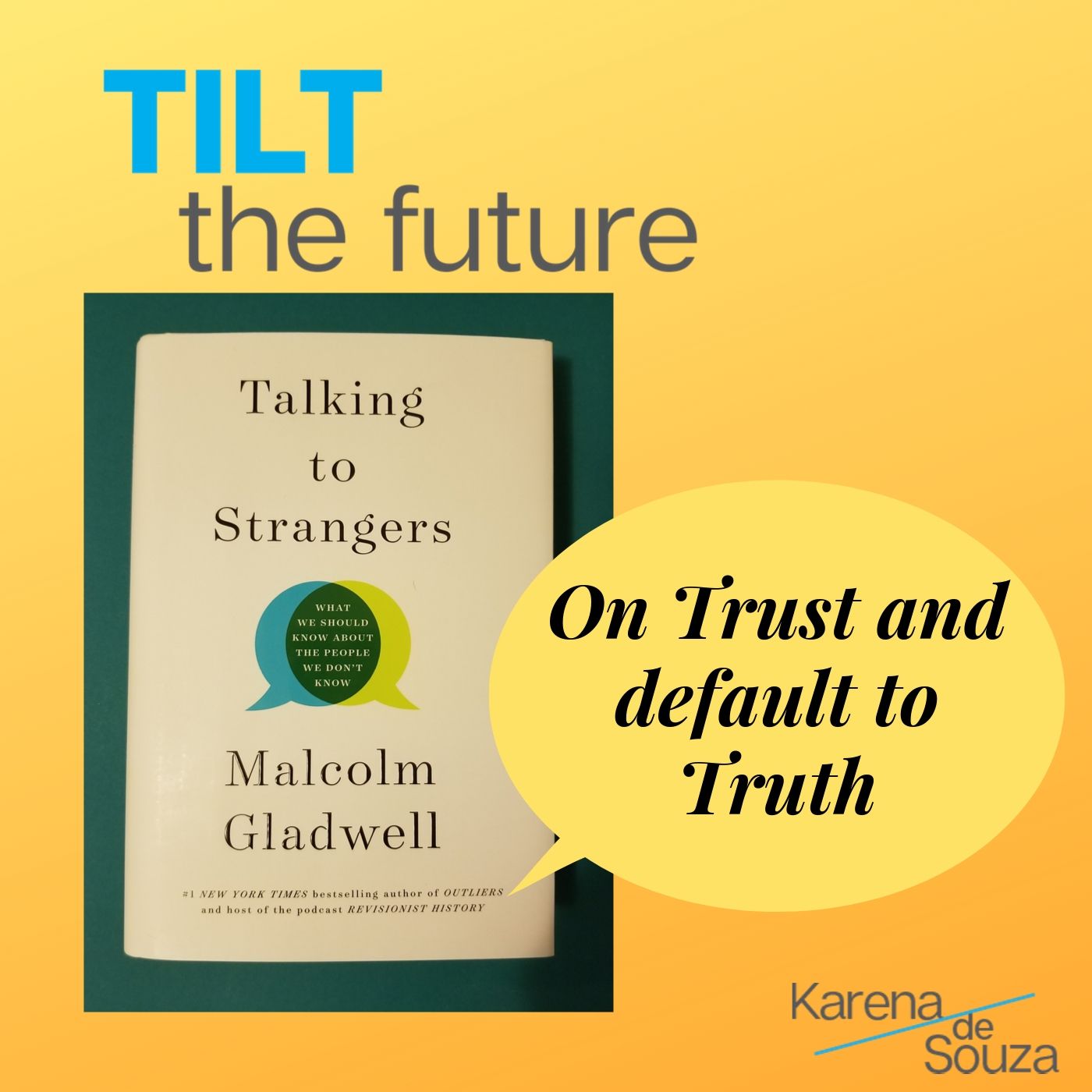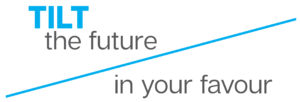
10 Oct Malcolm on Trust: Default to truth
He had me at ‘spy stories’.
The podcast episode here:
When Heather Reisman asked Malcolm Gladwell what compelled him to write the book ‘Talking to Strangers – What we should know about the people we don’t know‘, he said he loves a good spy story. So he started asking himself the question “Why do so many spies go undetected for so long?”
A really good spy has to understand human psychology, how to leverage it, and undermine it.
A really great double agent has to understand Trust, how to earn it, how to leverage and then have the hutzpah to trample right over it.
That is what gets us to stay up late into the night turning the pages till the very end. When the novel we are reading is fiction.
Destruction of Trust
But this book is not fiction.
It went about steadily attacking and disassembling a core concept – that of Trust. The very trust we rely on to create a society within which to function. The trust we use to develop a tribe or a community of ‘people like us’.
It describes some historical deceptions. Did Hitler dupe Neville Chamberlain outright at the start of World War 2? Or did Chamberlain misread the situation, as he put his faith in mankind, grasping for the hope of peace?
It assaulted everything I wanted to believe in about trust: the goodness of mankind, and human interactions.
Real-life
This book is not fiction. Between the two covers, it analyses and then connects back the dots on some of the most depraved cases in recent memory. It is littered with words like callous, monstrous, depressing, assault – all describing real-life cases.
The Stanford rape case, the betrayal of adolescent trust by Sandusky, and by Larry Nassar are all carefully deconstructed.
I warn you – it is a lot to take in, all in one sitting.
I recommend splitting the chapters with occasional forest bathing to cleanse and restore your soul.
Conundrum – default to trust
In the closing pages of this book (pgs. 342-343) he talks about the core conundrum.
We, as a society, operate on trust. Historically that trust was built over time and contained within geography. It meant that we understood the parameters that influenced our neighbours.
Now we are a global society. Our lifestyle means that we are no longer living in villages or in tribes. Even those of us who live remotely are invariably connected to a more global society via Facebook and Amazon.
As a means to navigating this more rapid, complex and transactional world, we ‘default to trust’. We want to believe in the best of someone.
- We will do our due diligence of a nursery before placing our children there, but assume that the school has done theirs in hiring a reliable portfolio of staff – strangers – who will not hurt our children.
- We ‘default to trust’ when we board a bus or a plane, in the expectation that the driver or pilot – a stranger – is not scheming.
- We have evolved to a point where our youth now meet in universities without archaic chaperones.
- We ‘default to trust’ when we place our young gymnasts in the care of a Doctor who serves the Olympic team.
After reading the book, you may feel betrayed, unwilling to create a relationship even with those around you, wary of entrusting your children to those you do not know well, analyzing each and every email and interaction carefully.
Connecting the dots
You may recall Steve Jobs Stanford commencement speech in 2011 where he said you can only connect the dots looking backward.
Gladwell’s use of stories captures the imagination and gives credence to his crazy way of connecting points. In both his podcast Revisionist History and his book, Gladwell has the luxury of looking back. The ability to review and unpack an event in hindsight causes us to question – if we knew then what we know now could we see where and whether we would have written history differently?
Some cases are sad and graphic.
Each one forces you to question: if it was so clear looking back, why was it missed in the moment.
And so we return to ‘Default to Truth’.
Books like this ask: What can we learn? Can we prevent tragedies such as these from happening again?
The answer is yes- but it comes at a huge social cost.
The cost of distrust
We could all choose not to default to trust, to “abandon trust as a defense against predation and deception”, but how would that improve or hinder the machination of our society? Gladwell shows us – through the life of Harry Markopolos in the Madoff case – what that level of distrust does to an individual.
Are these terrible cases the price we pay for a more modern, global society?
We are left as many new questions as the old ones that were answered.
If we all become a lot more distrusting and wary of each other, we may be able to prevent these situations.
Sandra Bland
And then the reverse also becomes true as we see in the analysis of the death of Sandra Bland – a sad and pivotal story told repeatedly through this book. Brian Encinia followed a set of recommendations based on an experiment designed to reduce crime in inner cities. An experiment that rapidly expanded to most corners of the US. At its core, it requires that the officers start their interactions from a position of distrust, questioning everything.
When the solutions ripple into new problems
This book has highlighted an issue that has become typical and repetitive recently. Smart human beings – in their quest to optimize, reduce friction and solve problems such as high crime, or leverage a lake of personal data – come up with some great ideas. Processing power has meant that we can mine this information for patterns and create assumptions. Then we deploy these as solutions.
We replicate these due to their success. But in doing so, they get de-coupled from their original intent and end up having a ripple effect that was not intended.
That is what happened with Sandra Bland.
The impact of algorithms on our Future
These algorithms are beginning to run our financial lives, parse our resumes before a human eye sees it, and funnel our purchasing decisions.
Only in hindsight will we be able to see the implications of such decisions. But for now, we need to be challenging ourselves at each stage: Can we do this? Yes. But, should we do this? And again, should we STILL be doing this?
There are no easy answers. But these remain great questions.
Advice for young adults
This book affected a core teaching in my workshops: the need to network as our work cycles become increasingly transactional.
How should I change my advice going forward? How do we reach out to strangers?
As we talk about improving our ability to find work in a new Future of Work and gig economy, extending our circle of contacts is a key technique for success (it is a numbers game).
But I will now add Gladwell’s advice.
The right way to talk to strangers
Whether it is as a result of an algorithm or a person, Gladwell reminds us:
We can choose to become more paranoid and distrustful of each other.
Or we can still choose to engage in the world and with humankind adding a tweak. As Gladwell pleads (pg. 261):
“The right way to talk to strangers is with caution and humility.
How many of the crises and controversies I have described would have been prevented had we taken those lessons to heart?”



No Comments